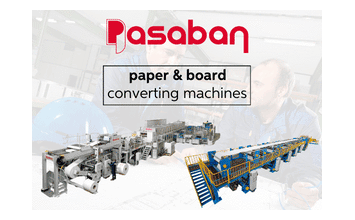In my role as a consultant, one comment I often receive never ceases to surprise me. Yet, it comes up no matter what type of organization we diagnose: "I don't have time to do the work associated with my job title".
In other words, we have planners who don't have time to plan, supervisors who don't have time to supervise, and so on.
As a consultant, I have the opportunity to interview and talk to a large number of employees as part of the maintenance and reliability diagnostics I perform for Laurentide's clients. I can confirm that this is both a common and limiting problem, both for employees who feel helpless in the face of the situation and for companies whose productivity is restricted when the team is operating in reactive mode.
What does it look like in the day-to-day?
To bring real value to the plant, a planner should not:
- Be a servant to the supervisor and the tradespeople
- React to emergencies and current issues of the week
- Be a purchaser
- Perform administrative duties that consume too much of their time
- Be a "desk planner"
- Act as the department's help desk
Yet when roles and responsibilities are not clearly established and communicated to the entire team, it is very difficult for a planner to resist and say no when asked by supervisors and fellow employees to perform tasks that will bring little value to the planning function.
What if this is merely a symptom?
Planning and supervisory roles vary from organization to organization based on established management processes, but also because of the size of the plant or site.
However, it is difficult to establish roles and responsibilities without first documenting and mapping the planning and scheduling business processes as well as other management processes.
If the planner's role description is too general or broad, chances are that they are regularly busy managing emergencies, filling in for the supervisor, or purchasing items for special projects or equipment modifications.
The planner's inability to plan is therefore symptomatic of a lack of preparation up front. Once the processes have been developed, documented and validated, the roles and responsibilities of each of the stakeholders involved in their execution can be written down.
Fortunately, better planning upstream can be learned
Once you have a better understanding of the different aspects of maintenance planning and scheduling, it becomes easier to identify the elements that need to be put in place in order to get the best out of your team. After all, in today's labor shortage environment, what plant can afford to under-utilize its staff?
From job planning to job closure, through execution and review, I have developed a two-day training course to equip planners, supervisors, managers/supervisors and coordinators with a better understanding of workforce planning and scheduling. Click here for upcoming dates.
 About the Author
About the Author
Michel Côté
Senior Reliability Consultant
Laurentide
About Laurentide Controls
Operating since 1968, Laurentide Controls has been helping industry thrive for over 50 years. We are the largest supplier of automation, and reliability solutions to industries in Eastern Canada.
As an entirely employee owned company, every member of our team is driven by the shared goal of empowering people and advancing industry.
As an Emerson Impact Partner, Laurentide Controls connects customers with world-class solutions, superior local and global technical expertise, and life-cycle services for all of our clients’ automation assets and needs. These capabilities enable us to partner with customers in their journey to be Top Quartile in their industry. www.laurentide.com













